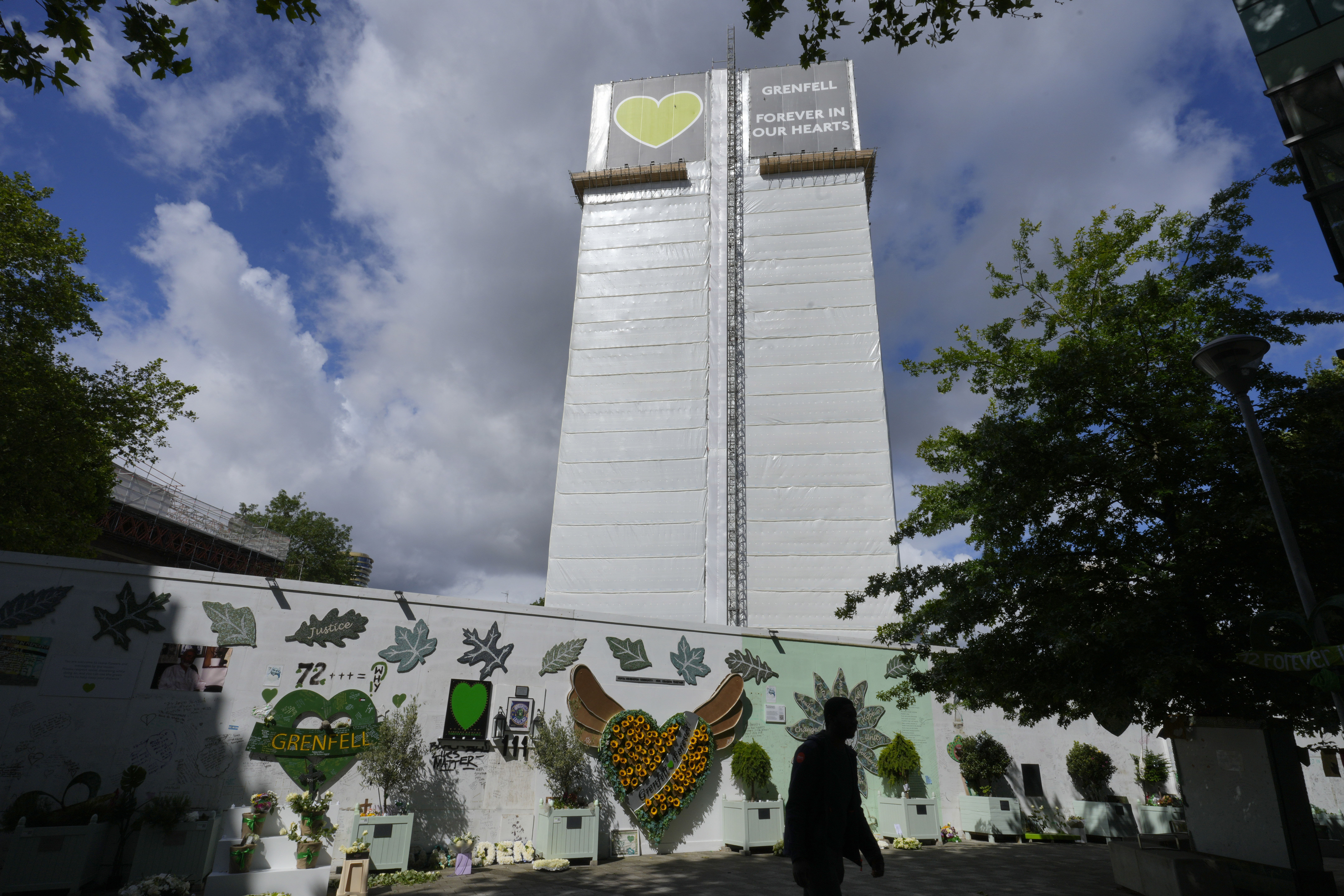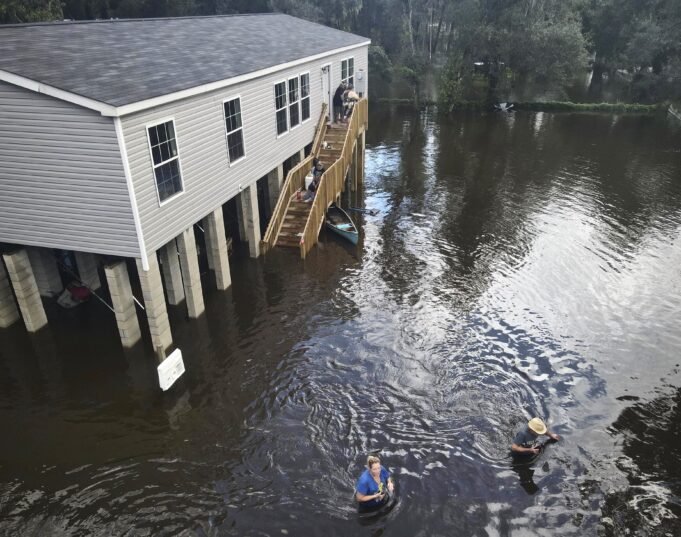Tropical Storm Debby intensified into a Category 1 hurricane before making landfall along the Gulf Coast of Florida on August 5. As the storm traveled across the East Coast, it left destruction in its wake.
Cities issued curfews, state after state issued emergencies and President Joe Biden approved emergency disaster declarations as the East prepared for what Ben Webster, Charleston County, South Carolina, Interim Emergency Director, called a “historic and potentially unprecedented event.” The storm took the lives of at least seven people, four in Florida, two in North Carolina and one in Georgia.
Florida
In Florida, Hurricane Debby brought with her record-setting rain, causing flash flooding in various parts of the state. Hundreds more were rescued from flooded homes. More than 350,000 people were without power in Florida and Georgia, according to PowerOutage.us.
Two days after the storm first made landfall, more than 25,000 people were still in the dark in Florida. The storm also caused above average temperatures in the state. Its degradation back into a tropical storm did not stop its path or its impact.
Georgia
Tropical Storm Debby left rivers swelling with water, threatening additional floods and dams on the verge of breaking. It tore through the state with heavy winds and rain.
Mayor Van Johnson of Savannah, Georgia, was terrified of the rain and flooding Debby would bring to the city. “As bad as it was, as bad as it is, it could have been much worse,” the mayor said during a media briefing on Aug. 7. Savannah Fire Rescue and the Savannah Police Department responded to more than 900 calls by the morning of August 6.
South Carolina
Tropical Storm Debby made its second landfall between Charleston, South Carolina, and Myrtle Beach on early August 8. It weakened into a tropical depression later that day, but still wreaked havoc in the Southeast.
Power outages in the state rose from 12,000 on the storm’s second day to more than 30,000 by the fourth day. About 50 homes in the southern part of the state sustained damage, as the state saw torrential downpours and life-threatening flooding.
North Carolina
Tropical Storm Debby hit North Carolina with heavy rainfall. Almost 60,000 people in the state experienced power outages on day four. One seaside town, Ocean Isle Beach, issued a voluntary evacuation order.
More than one million people in the Carolinas were under a tornado watch, and parts of Florida, Georgia and the Carolinas also experienced triple-digit heat temperatures.
Virginia, West Virginia, Ohio, Delaware
Virginia Governor Glenn Youngkin declared a state of emergency on August 6 based on forecasts that Tropical Storm Debby would bring significant rainfall and flooding.
Days later, more than 34,000 people in Virginia and 10,000 in West Virginia were in the dark. Hundreds of thousands experienced power outages in Ohio for days, with a peak of about 330,000 people.
At least a dozen tornadoes spawned in parts of Florida, the Carolinas and Virginia. A tornado was also observed in Delaware.
Maryland, Pennsylvania, New Jersey, New York
Tropical Storm Debby’s impact reached Pennsylvania, New Jersey and New York, causing downpours and a cold front to move through the region. All three states issued flash flood warnings.
By August 9, Debby weakened from its tropical storm status, but it still caused more than 21,000 people in Maryland and 29,000 people in Pennsylvania to suffer from power outages.
The storm also set off tornado and flood warnings in Washington, D.C. More than 40 million people were under flood alerts on Aug. 9, stretching from Georgia to New England, and more than 26 million people in Virginia, Maryland, Delaware, Pennsylvania, New Jersey and New York were under tornado watches.
Extreme weather and divine warnings
As Debby ravaged the East Coast, an EF-1 tornado touched down in Buffalo, New York, on August 5. The tornado reached wind speeds up to 90 mph and had a damage path six times more than average. It broke the state’s records for the most tornadoes in a single year, meteorologists said. The previous record was set in 1992 at 25 tornadoes.
And on August 6, a 5.2-magnitude earthquake was felt in Southern California, causing more than 400 tremors.
The Most Honorable Elijah Muhammad, the Eternal Leader of the Nation of Islam, and his National Representative, the Honorable Minister Louis Farrakhan, have been warning America for decades of God’s four great judgments. He is bringing upon America: rain, hail, snow and earthquakes.
Though Debby fell on the weakest side of the hurricane scale, it did not stop her from dumping dangerous levels of rain on the East Coast.“To be plagued with too much rain will destroy property and lives. It swells the rivers and creeks. Too much rain floods cities and towns.
Large bodies of water at the ocean shorelines will be made to swell with unusually high waves, dumping billions of tons of water over the now seashore line,” the Most Honorable Elijah Muhammad wrote in his book, “The Fall of America.”
“Rain destroys property and kills cattle by drowning them in lowlands. Rain destroys the hiding places of vicious beasts and reptiles, bringing them out fighting in small towns in peoples’ homes and farms,” he continued. “Rain weakens and destroys railroads, truck line beds and bridges. Rain undermines foundations of all types of buildings. Rain makes the atmosphere too heavy with moisture, causing sickness.”
He warned that rain accompanied by wind brings destruction to towns and cities and brings various germs, causing further sickness.
“It produces unclean water by the swelling of streams and destroying reservoirs of pure drinking water used for the health of the people. Rain is a destructive army within itself,” he wrote. In a news conference that took place shortly after Hurricane Katrina wreaked havoc in 2005 in late August, the Honorable Minister Louis Farrakhan attributed natural disasters to the evil of the American government.
“Most of you are very unaware of what your government does in the name of the American people to make nations fall. I am talking about killing millions of people. The American people know nothing about America’s foreign policy,” he said. “We must pay for these things. That is why Jesus said, ‘As a man soweth, the same shall he also reap.’ So our government must be careful of what seeds it sows.”
He warned that what is being seen is “only the beginning of sorrows.”
“What about pestilence, famine and earthquakes? This is what Jesus foretold. You can run all over the world and find terrorists; go find the God Who is terrorizing this land and arrest Him. That you cannot do, so the best thing for us to do is recognize the power of God has entered this house,” he said.
“You will find unusual rain, snow, wind and earthquakes. Everything you depend on for your sustenance is going to be turned against you. You must pay for what you have done; we all must pay for what we have done, and it seems like it’s payday.”













